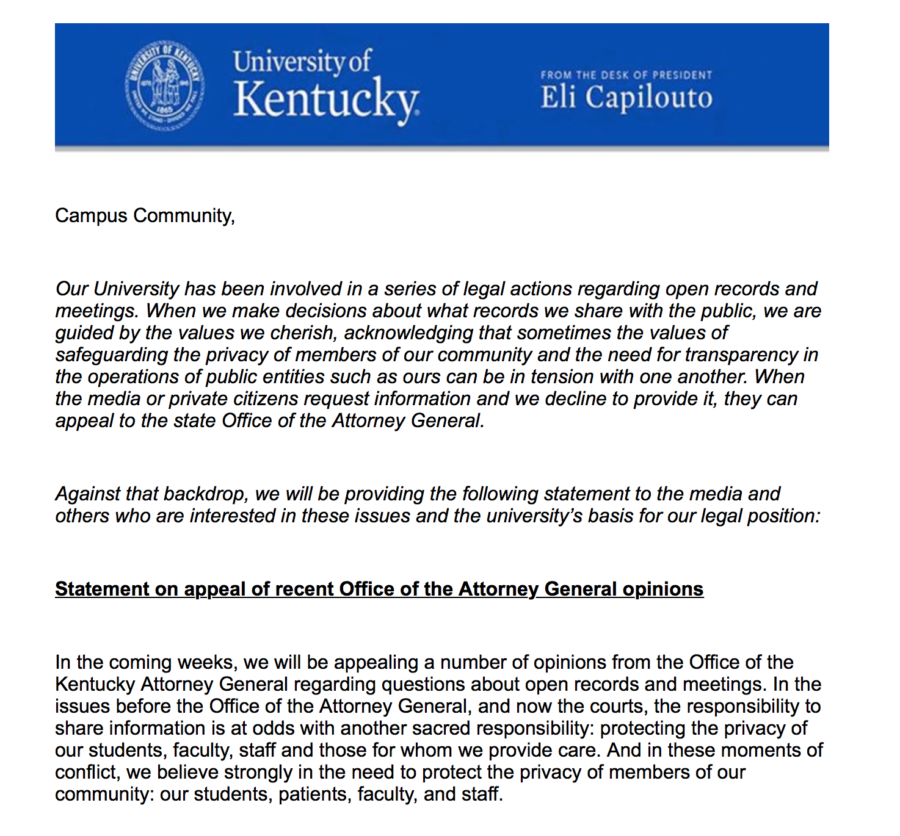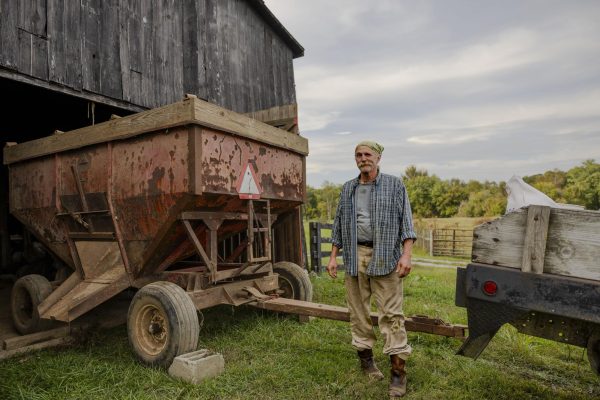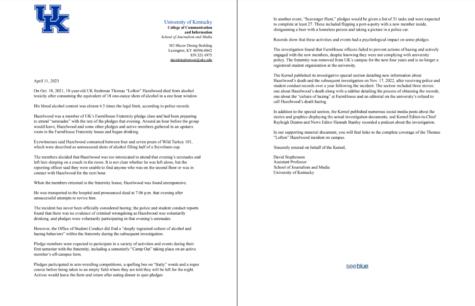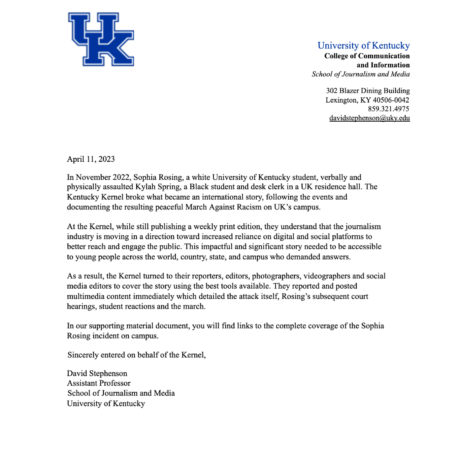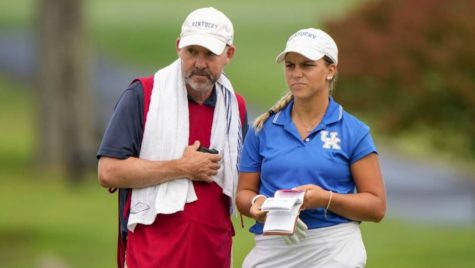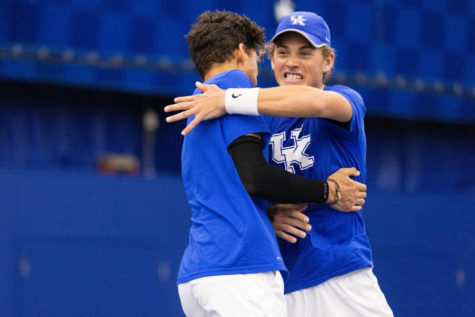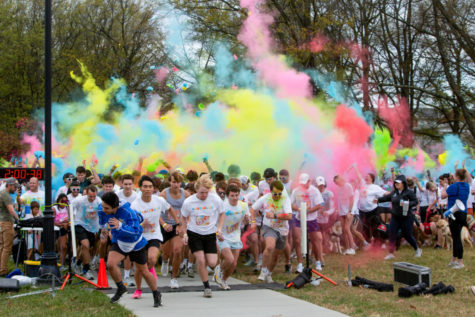Law student critizices Capilouto’s sexual assault comments
President Eli Capilouto emailed campus saying the university would be appealing decisions of the Attorney General. To keep open records undisclosed, the university would have to bring the Kernel to court.
November 9, 2016
I read the email over and over. Is this real? Is President Eli Capilouto blaming the university’s student newspaper for a decline in reported sexual assaults?
I’ve followed UK’s dispute with the Kentucky Kernel since last spring. I cheered for the Kernel when Attorney General Andy Beshear decided the university violated Kentucky’s Open Records Act. I was disappointed to find out the university would be naming the Kernel as a party to a lawsuit fighting Beshear’s opinion. I disagreed with the university’s decision, but I understood the complexity of the issue and that it was the school’s only way to fight the decision.
But I really couldn’t move past Dr. Capilouto’s letter in late October. I couldn’t wrap my mind around his manipulative use of victim empathy and misleading talk of media intimidation.
It was too personal.
I’ve sat for hours with friends, listening as they bravely recount stories of someone crossing an intensely personal line. I would listen and sometimes share my own story. Outside of being a friend, a sorority sister and a student, another perspective allowed the issue of sexual assault to always surface. Until I began law school this year, I would walk every day into some form of a newspaper newsroom. For nearly three years, that newsroom was at Murray State University.
As the editor of The Murray State News, I recognized the impact sexual assault had on our campus community. I had a difficult time separating those personal stories from police beat write-ups or columns addressing our low number of reports.
I knew our students looked to us for coverage of these issues. Who else would they turn to? Who else would they trust more than the students in their hallways, in their organizations and classes?
This is the perspective I held while reading Dr. Capilouto’s email.
And here’s what perplexes me about it: I know the University of Kentucky and Dr. Capilouto want to fix the problem. I know he aims to do well beyond what is legally required to make sure students are never hurt in this way, and especially by a professor on campus. I know Dr. Capilouto cares about the students who bravely came forward with their stories.
But it’s clear by the accusatory rhetoric in Dr. Capilouto’s email that he’s forgotten a few things.
First of all, the students who work for the Kernel are just that, students. They have friends who have been sexually assaulted. It’s unfortunately likely that there’s a staff member who has felt out of control in his or her own situation. How do I know this? Do I need to repeat the national statistics? Too often, members of the media are treated as if they live in a vacuum and don’t personally feel the impact of these at-large societal issues.
On a related note, what interest would it serve for the Kernel staff to reveal details of an assault that could identify a victim? As Editor Marjorie Kirk has said in columns and stories, the victims involved went directly to the Kernel on their own accord. If Dr. Capilouto knew anything about the ethics his own journalism school is teaching – by seasoned experts in the media field – he would know that there is a very specific and detailed approach journalists use in sensitive situations like this.
To get an idea of what is taught in journalism schools about covering sexual violence, look no further than Columbia Journalism School’s Dart Center for Journalism and Trauma. When student journalists help victims tell their stories, one of the major priorities, as Columbia points out, is checking repeatedly to make sure you’re not compromising your source’s identity if he or she chooses to remain anonymous. Journalism programs teach students to always consider the sensitivity of the situation, think through their language carefully and consider the impact of publication. I see absolutely no instance, and neither do media experts, where the Kernel has violated those ethics.
And another thing I would ask Dr. Capiluto to consider: he knows where the Kernel is. He hasn’t once agreed to meet with Marjorie to discuss his concerns about privacy for victims, which makes me doubt his sincerity. Instead of simply talking to his own journalism students from the beginning, he orchestrated campus-wide emails condemning them.
Maybe the defensive rhetoric blaming college media – the very institution responsible for bringing this issue to light nationally — is the reason students, faculty, media experts and most importantly, victims, are concerned about the university’s intentions. Maybe, if the university is truly worried about a decrease in reported sexual assaults, it should focus on real reasons students have always been hesitant to report instead of using the media as a scapegoat.
If victims of sexual assault have been worried about media coverage, (Marjorie has said recent coverage has had the opposite effect) it’s likely because of the university president’s own language.
I’m simply asking that the university take a step back and acknowledge that everyone is working toward the same objective: keeping students safe and eradicating the silent nature of sexual assault that has devastated college campuses across the country.
Email [email protected].












































































































































